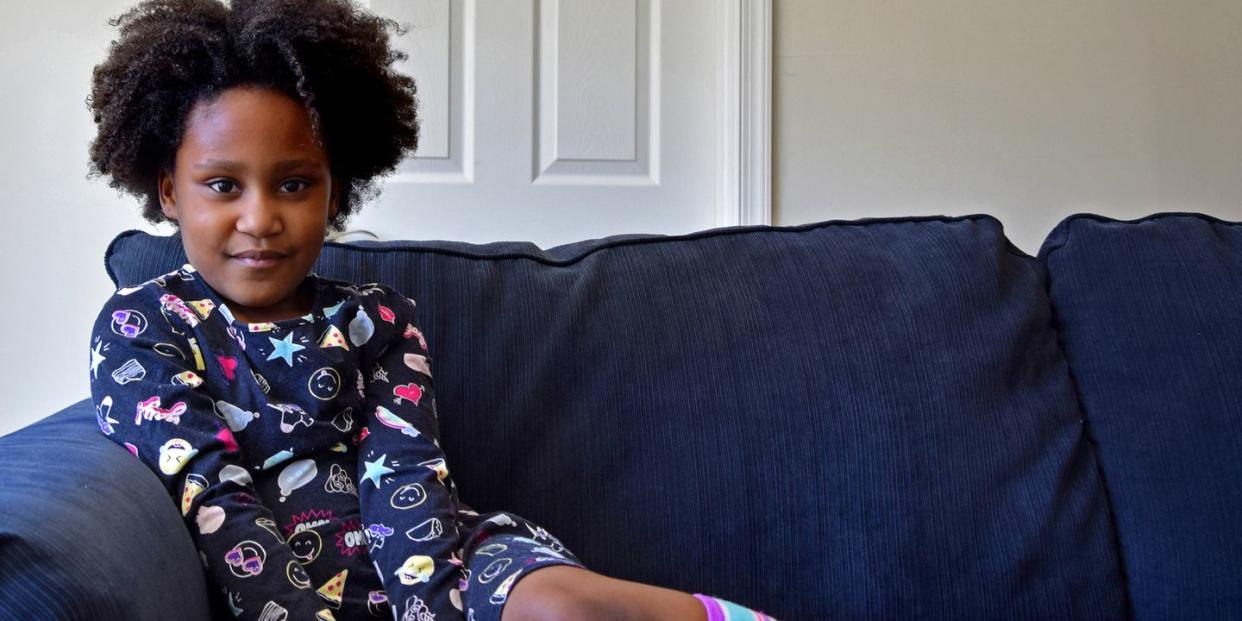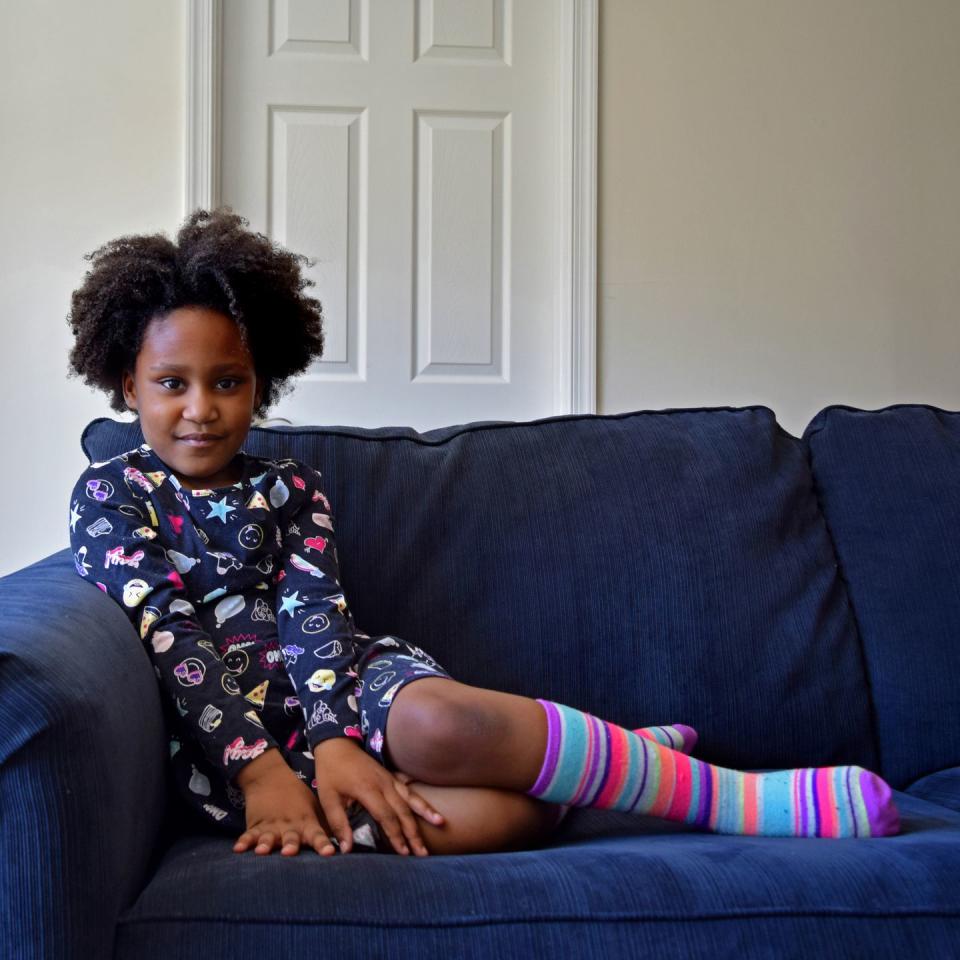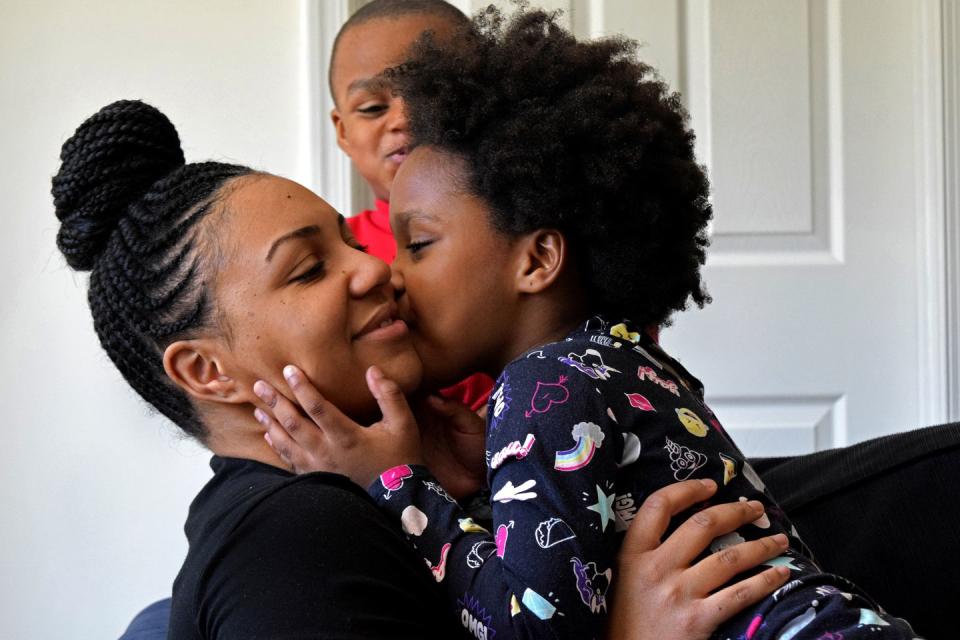The Challenge of Raising a Black Girl to Feel Beautiful

Close your eyes for three seconds and imagine the most beautiful celebrity in the world.
What did she look like? Were her eyes a deep brown hue? Was her nose full with wide nostrils? What about her skin-did it have an umber tone? Was her shoulder-length hair full and coily?
Probably not. And if your image didn’t include these attributes, you’re not alone.
When asked to picture the most beautiful celebrity in the world, few imagine a black woman. We can agree black women are beautiful, but there aren’t a lot of folks that would add the superlative adjective to that statement.
That’s fine-beauty is subjective, and humans are notoriously attracted to people who resemble themselves. But I’m always concerned when I ask this question and a black woman, especially a little young black girl, doesn’t imagine a black woman as the most beautiful celebrity in the world.

I’m the mother of a seven-year-old black girl named Maya. My efforts to help her think of black women as beautiful in their own right has included calculated conversations since she was four-because I know the female standard of beauty is set at a young age. I’ve tried to teach her that the world’s definition of beauty may fluctuate, but her own standard of beauty should endure. When it comes to her hair we’ve discussed that it’s perfectly acceptable for it to be worn in all states, styles, and lengths. In other words, it’s okay to want straight hair on a Monday and afro puffs on a Saturday, because her personality will shine through in either way.
Fellow mothers of Black girls understand this relentless effort-there is no moment off. The chances of our daughters seeing a Black actress lead an ensemble cast, or a Black celebrity being named the “Most Beautiful Woman in The World” are slim. At any given second, our daughter can consume a 15-second piece of media (from TV commercials to YouTube videos) featuring an actress that makes her ask:
“Mommy, I like her hair. Why can’t you do my hair that way?”
“Her voice is softer than mine. I wish I sounded more like a princess too.”
“Am I fat? Her face isn’t as full and wide as mine.”
If asked who was the most beautiful celebrity in the world, some Black girls would intuitively respond, “Beyoncé” or “Serena Williams!” But even these girls-those who are comfortable in their skin, those who hold their head high, those who carry their genetic features like a badge of honor-face opposition from society. Take the many Black girls who stay up all night getting their hair braided for the following school week, only to be sent home within hours for “inappropriate hairstyles.” This absurd phenomenon continues to see school administrations discriminating against for young Black girls for wearing natural hairstyles.
I find it even sadder when the confrontations occur in the form of prejudice from their own race and gender. Take last year’s study “Girlhood Interrupted: The Erasure of Black Girls’ Childhood” conducted by Georgetown Law’s Center on Poverty and Inequality. The study showed that Black girls as young as five years old were deemed less in need of nurturing, comfort, protection, and support by adults from a variety of racial and ethnic backgrounds. Or take this comment pulled from a 2014 online petition for Beyoncé to comb her then two-year-old daughter Blue Ivy Carter’s hair:
“I’m signing because I think it’s very important that she gets her hair combed too, Beyoncé’s hair is always ‘Flawless’ when she’s out in public, but when it comes to Blue Ivy, Its lint balls and nappy dreads as a single mother I should know. I would never let my child out of the house looking a mess like that. What kind of mess is that having a baby girl with dreads! Come on now what is she a dyke?? Comb her hair!!”
As mothers, how can we teach our daughters that Black girls and Black women are beautiful when they face criticism, ridicule, and discrimination from women who look just like them?
In a recent interview, Beyoncé noted: “My mother taught me the importance not just of being seen but of seeing myself. As the mother of two girls, it’s important to me that they see themselves too…. they don’t have to be a certain type or fit into a specific category.”

I, too, have frequent conversations with Maya about Black celebrities who I consider to be beautiful, but as psychologist Dr. Shefali Tsabary said, “the best thing a mother can do is be her most empowered, authentic self.” Black women adopt self-hatred and pick up on body-shaming cues from our culture at large, but it's first and foremost their mothers who set the beauty standard. And for decades, that beauty standard has been warped and objectified by commercial forces outside of the home. Perhaps this is the unfortunate reason why today’s Black woman continues to spend more than other races on beauty products.
I encourage mothers of Black girls to move beyond questioning commercial beauty standards and stressing the power of diversity. I’m now focused on leading from a place of love-specifically, showing my love for the beauty of Black women. Maya will be judged regardless. My job is to ensure she’s not only comfortable with the color of her skin, but also confident that her mahogany hue is absolutely stunning.
We need to shift the conversation from a place of embracing inclusion to teaching pride. Young Black girls should consider women like them (and hence, themselves) the most beautiful in the world. Why would I teach my daughter she must be celebrated in all rooms, if I’m not teaching her to celebrate herself? As a mother, I refuse to willingly contribute to the next generation of Black women who are comfortable with beauty inferiority. That’s what I call ugly.
('You Might Also Like',)

